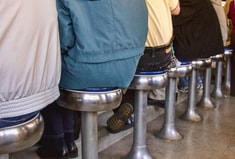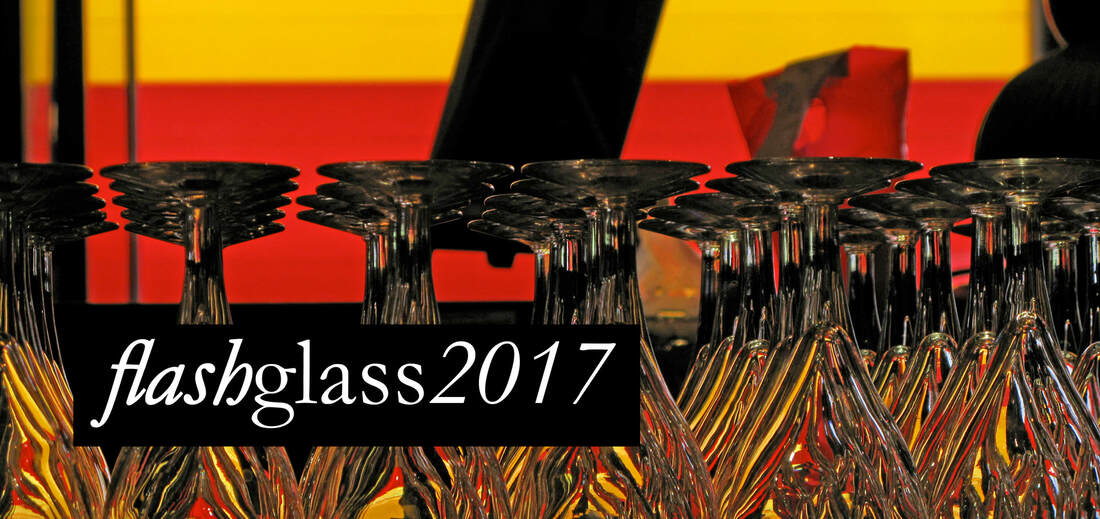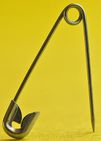 The diner cringes in snowfall. Parked pickups sneer as I slog to the door and peer in. The men at the counter hulk like Easter Island’s giant heads. They don’t bother to turn to watch me dripping in the doorway. Despite their hairy exteriors and filthy mouths, these men are devout churchgoers, whose Sundays yawp with hymns shaped like dirigibles and just as lofty. I want to explain to them that I once believed in both physical labor and spiritual bliss, but something underground derailed, and the blue sparks of dragging steel illuminated places I hadn’t imagined. Now I want to delve into distances brisker than the wind on the river, want to track through matter tougher and more permanent than snow. They’d laugh, of course, and look at me with dutiful Christian pity. Poor old coot, they’d mutter. Too much education for his own good. Too much mind to lose. Too many horizons bleak above his carcass as he naps. They’re right, of course, their faces brimming with health and ignorance. Better not to know how deeply the starlight despises us every night, how indifferent the winter daylight blue. And now, enveloped in snowfall, this diner sweats and smelts and crushes us all together in a scent of flesh so powerful even extinct carnivores threaten, their saber teeth glinting in the stainless landscape outside. William Doreski lives in Peterborough, New Hampshire, in a small house in the woods. He taught at Keene State College for many years, but has now retired to feed the deer and wild turkeys. He has published three critical studies, including Robert Lowell’s Shifting Colors. His essays, poetry, fiction, and reviews have appeared in many journals and several small-press books. His forthcoming book of poetry is The Last Concert (Salmon Press).
0 Comments
She was infamous for having whiskey in her coffee cup while teaching. Mother would most days either fall asleep on the couch after her final two cherry Manhattans of the day, which I had learned how to make for her. Or she would beat me, with a hair brush, her stiletto heel, bookend, her fist, my belt—anything that was within reach when her violent nerve was triggered. I was often blamed, for answering the telephone (usually creditors), for talking back (children should be seen and not heard), for having chicken pox, for not cleaning the floor correctly, for anything and nothing at all. ~
~ My father died when I was 19; he was 45. My mother threw herself on top of his body and blamed herself for the cancerous end. Her drinking worsened. After college, I moved to New York. When I called her on a payphone to tell her that I was pursuing acting, she called me a slut and hung up. She threatened suicide 3 years later and I moved back to Pittsburgh. There were 10 years where I did not speak to her. The family home, she allowed to go to Sheriff’s sale, after abandoning it, not paying back taxes. The day after the birth of my daughter, 28 hours in labor, my Mother came to the hospital drunk. She told me that I had betrayed her. Four years later, I watched her have a heart attack in the E.R.. A tumor had dislocated her shoulder. She was put on morphine. She asked me if she was going to die. I said, yes.
|
FLASH GLASS: A MONTHLY PUBLICATION OF FLASH FICTION, PROSE POETRY, & MICRO ESSAYS
Categories
All
Cover Image: "Yellow Red Wine Glasses, Paris"
|
|
Glassworks is a publication of Rowan University's Master of Arts in Writing 260 Victoria Street • Glassboro, New Jersey 08028 [email protected] |
All Content on this Site (c) 2024 Glassworks
|




 RSS Feed
RSS Feed
